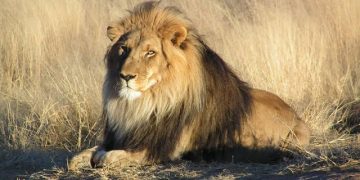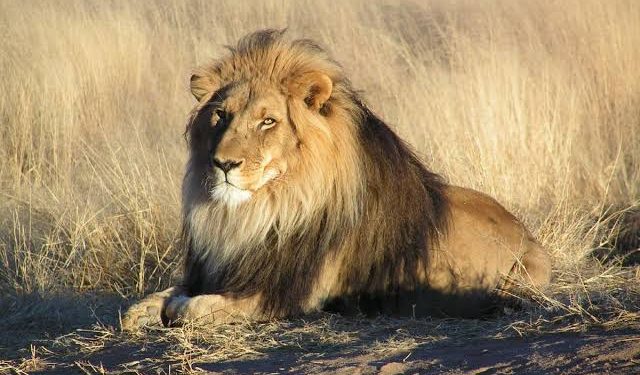Kampala, Uganda. Lions are becoming vulnerable and firm actions need to be taken to guarantee their welfare and sustainability, warns World Animal Protection.
Lions are one of the most popular animal species in the world and one of Africa’s iconic species. However, lion populations across Africa have faced a sharp decline.
Speaking at an event held at the Uganda Museum in Kampala to kick-start activities in commemoration of the World Lion Day, Edith Kabesiime, Wildlife Campaigns Manager at World Animal Protection, said an evolving threat is lion poaching for bones to be used in Asian Traditional Medicine.
“Here at home, lions have been poached for parts used by traditional healers. They are also hunted for trophies in some African countries under hard-to-justify claims that the practice is good for conservation, economy and local livelihoods,” she noted.
She added: “As humans, we are continuously and selfishly creating a world that is neither safe for us nor other creatures that are supposed to share it with us. This craziness needs to stop.”
She said with all the factors, African lions are facing a crisis.
With around 20,000 African lions left in the wild, they are now officially classified as ‘vulnerable’ by International Union for Conservation of Nature (IUCN).
While Uganda has registered tremendous improvements in maintaining and even increasing the wildlife populations in the last 3 decades, the situation of lions remains precarious as numbers continue to plumet every year, and just a few hundreds remaining.
Lion numbers continue to decline in Uganda’s protected areas. For example; Queen Elizabeth National Park has lost more than 20 lions (20%) in the last four years.
She noted that the rapid rate of loss is nothing but a signal that the country is at the verge of losing all its lions and perhaps other big carnivores (leopard, wild dog and cheetah) if nothing is done to reverse the trend.
Amos Wekesa, a tourism enthusiast and proprietor of Great Lakes Safaris, said an average lion brings in 100,000 dollars a year and most tourists come to see the big five where the lions fall.
The World Animal Protection urged Ugandan authorities not to consider adopting and promoting captive breeding of lions as one of the approaches to save the country’s lions.
“Uganda should also not go down the route of breeding lions in captivity for lion interaction experiences as breeding lions for such cruel practices cause suffering. It has been proved that captive breeding of lions elsewhere in Africa has not served any conservation purpose. Therefore, it will be a huge mistake if Uganda chooses to tread this road. Firm action is needed to guarantee their welfare and conservation in the wild where they belong,” Kabesiime said.
The event was organized by World Animal Protection in collaboration with the Water and Environment Media Network (WEMNET) to kick-start activities in commemoration of World Lion Day which is marked on 10th August every year.
The event aimed at raising awareness of the plight of lions globally with a call to action to protect them in the wild.











